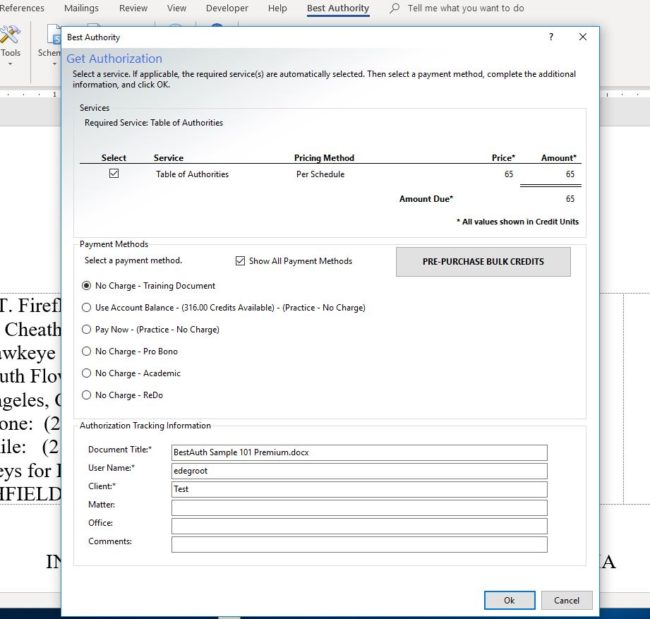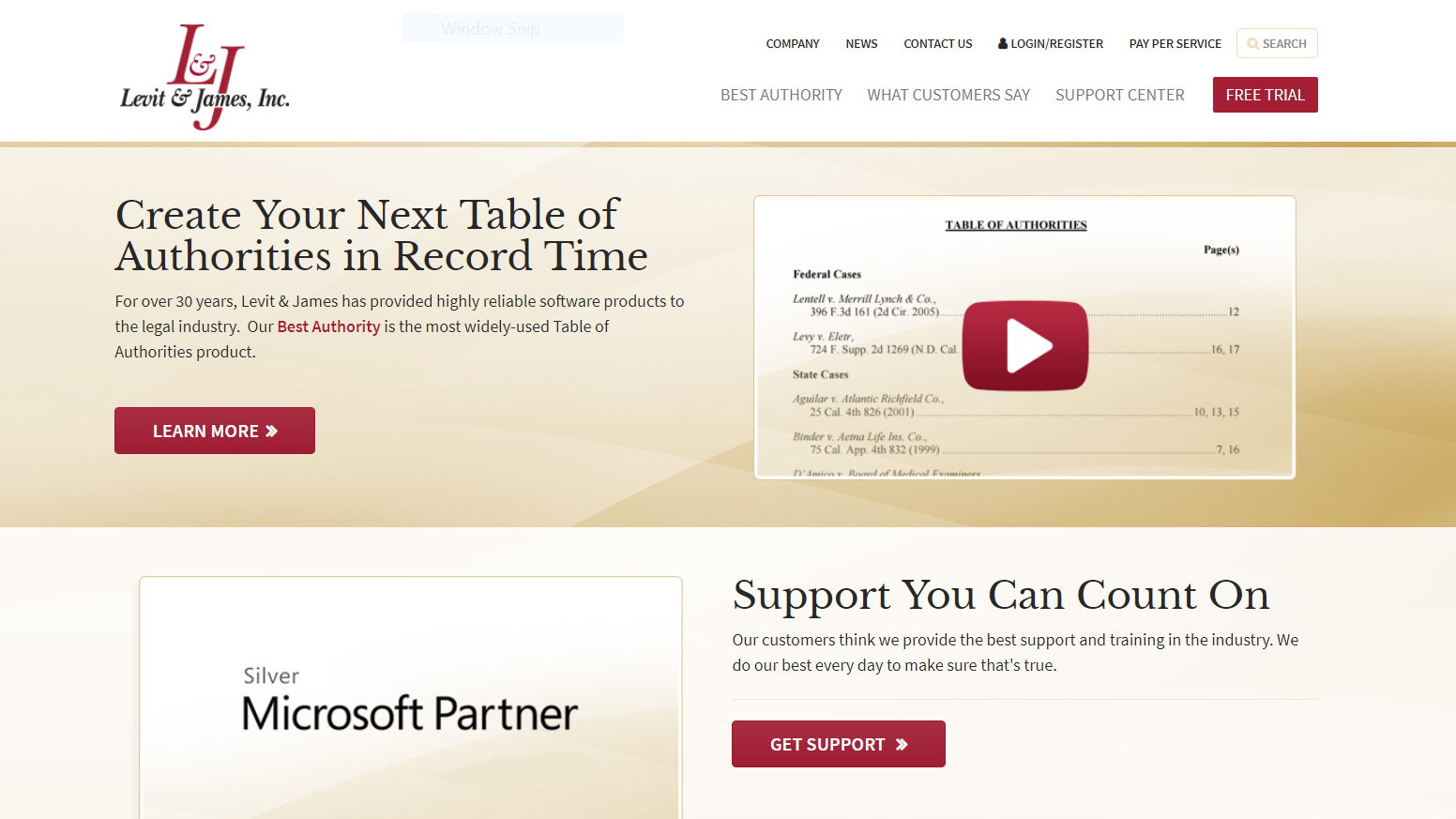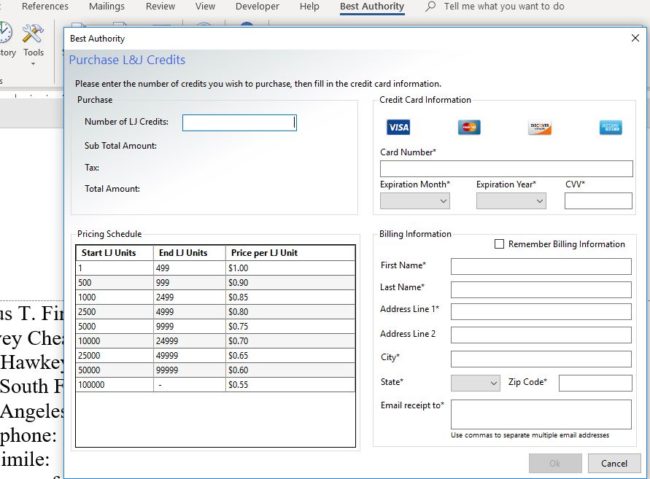Software company Levit & James, Inc. today announced the formal release of a pay-per-document licensing option for the latest version 5.0 of its Best Authority, a Microsoft Word add-in that automatically finds and marks all the legal citations in a brief and generates a table of authorities.
Formerly, law firms could purchase Best Authority only through a site license. The price of the license was based on the number of litigators and appellate attorneys within the firm or organization.
With the new Pay-Per-Service licensing option, users pay no licensing fees or up-front costs. Instead, they are charged based on the number of documents processed.
The new pricing starts at $65 for producing a table of authorities for a single document. If a firm needs to process a TOA for the same document multiple times, they only pay once.

Customers now have a number of payment options for a document, including pre-purchasing credits at a discounted price.
Customers will be able to pre-purchase credits to pay for documents. When they pre-purchase credits, they can earn discounts of up to 45% off list.
There is no charge for pro bono or academic use.
Customers receive monthly usage statements in a spreadsheet format with fields such as client/matter, which can be used for management and cost recovery. They are entitled to technical support, instructor-led online training and product upgrades at no additional cost.
Levit & James first announced its intention to introduce pay-per-use pricing in 2017 as part of its planned beta launch of Best Authority 5.0. It has been beta testing the new pricing model for several months.
The new pricing model should be welcome news for firms that do not have the quantity of brief writing to justify a site license.
Levit & James will be exhibiting at ILTACON 2019 in Orlando next week. Find them at booth #303.
 Robert Ambrogi Blog
Robert Ambrogi Blog
